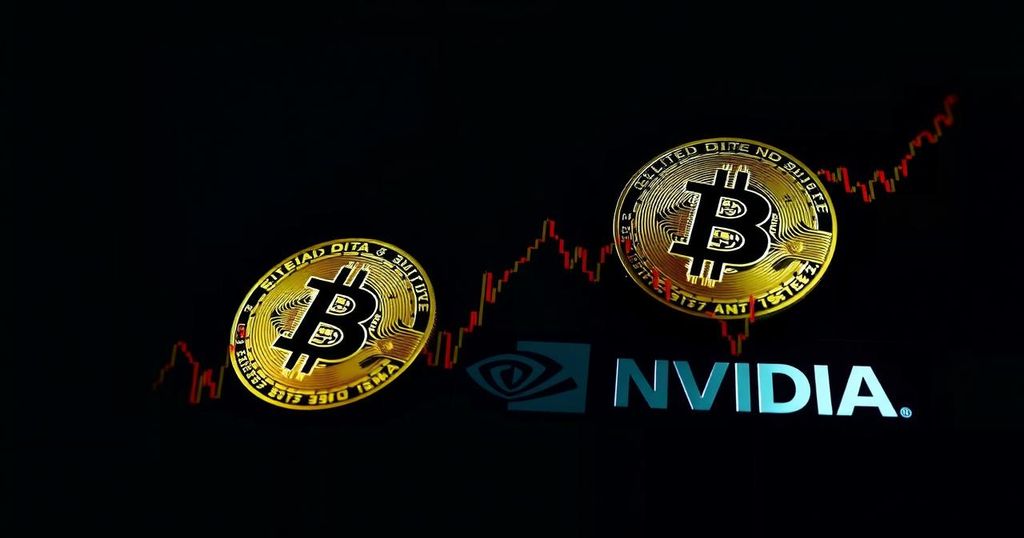Bitcoin’s Decline: Market Sentiment Affected by Tech Stock Performance and Economic Indicators
The cryptocurrency market experienced a significant downturn as Bitcoin (BTC) fell nearly 6% in a rapid decline on Tuesday evening. This abrupt drop negated the substantial gains made late last week, following dovish comments from Federal Reserve Chair Jerome Powell and the endorsement of pro-cryptocurrency presidential candidates Donald Trump and Robert F. Kennedy Jr. Although Bitcoin briefly recovered above $60,100 during early trading, it ultimately settled at $58,800, marking a 4.5% decrease over the past 24 hours. The broader CoinDesk 20 Index reflected similar losses.
Conversely, Ether (ETH) exhibited slightly better performance, declining by 4%, but it has experienced a significant decrease against Bitcoin, with its value falling 21% this year—a low not seen since April 2021. As of recent reporting, Ether is priced at $2,490, resulting in a year-to-date increase of only 9%, a stark contrast to Bitcoin’s impressive 39% rally. This divergence in performance is largely attributed to differing fortunes of spot exchange-traded funds (ETFs), whereby Bitcoin ETFs attracted net inflows exceeding $10 billion, while Ether ETFs have witnessed a notable loss of assets.
The broader financial landscape contributed to a risk-averse atmosphere in the market, particularly highlighted by a 1.3% decline in the Nasdaq index. A significant driver of this decline was a 3% drop in Nvidia (NVDA) shares ahead of the company’s impending quarterly earnings announcement. Despite being down from its earlier summer highs, Nvidia’s stock has surged 159% year-to-date, leading to considerable risk should their earnings or forecasts disappoint investors.
Compounding this unease is a potential misinterpretation of Chair Powell’s comments made during the Jackson Hole economic symposium, with traders adjusting their expectations for future interest rate adjustments. Predictions for a 50 basis point cut in the Fed’s benchmark rate surged to nearly 50%, though recent assessments have reduced this probability to 36%, suggesting that the upcoming government employment and inflation reports for August will be crucial in guiding monetary policy decisions leading to the September meeting.
In summary, the cryptocurrency market is facing considerable volatility influenced by external economic factors and differing asset performances. Investors are advised to remain vigilant as critical data releases loom and the implications of Nvidia’s earnings become clearer.








Post Comment